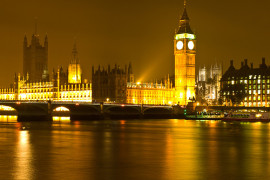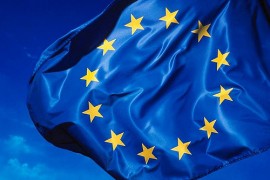The answer is that on one particular subject – the coverage of EU affairs – it most definitely is.
For 15 long years, News-watch has been investigating. Our reports deploy the most robust analytical methodology and demonstrate that, for example, over the treatment of withdrawal from the EU, the Corporation’s coverage is outrageously limited and skewed.
The latest report, focusing on the European elections in May, shows that during the entire campaign on the Corporation’s most high-profile news and currents affairs programmes, no supporter of withdrawal was asked a single question about the topic.
Instead, the focus was relentlessly – to the point of persecution – on whether those who supported withdrawal (UKIP of course) were racist, incompetent or corrupt. The latest full report can be read here.
Over most of those 15 years, the Corporation’s senior management and Trustees have disgracefully refused to engage with this research.
Instead they come up with a whole series of stonewall defences. This includes bunging loads of licence-fee cash to their media chums and former employees in academia to write rival reports. But their methodology, as News-watch demonstrated conclusively in a Civitas paper, is lamentably poor.
In the process, it has become abundantly clear that despite their protestations, Corporation news mandarins do not have the faintest idea of how to measure their own output. Their approach relies principally on bluster and insults.
So it was with great interest that I watched the latest defence against the recent big guns Tory attack when call me Dave and George Osborne accused the BBC of bias and exaggeration in its coverage of the Autumn statement.
The response of the BBC press office? “We’ll undoubtedly get more criticism from across the political spectrum as the election gets closer, but we’ll keep doing our job.”
Well golly. In other words, sometime in the next six months until the General Election, the Corporation will receive another complaint from someone from the other side of the political fence.
A defence, it seems, based on a new-found capacity of serried ranks of 180 in the Press Office to foretell the future. The sybils at Delphi would have been envious.
In fact, this argument – that because the BBC is criticised from all sides, it must be doing something right – is perhaps the oldest weapon in the Corporation’s armoury, wheeled out with wearying predictability.
News-watch records show the first use of the tactic back in summer 2000. In response to a report, they produced two letters by listeners one attacking John Humphrys for pro-EU bias, the second for his anti-EU bias.
There was no additional commentary, but incredibly, Corporation chiefs believed both that it was an-ace-of-hearts trump card, and that it showed that Humphrys could not be biased towards both sides of the argument simultaneously – so therefore he must not be biased at all.
A moment’s reflection shows that such ‘logic’ is utter tosh. One of the viewpoints could be correct and the other completely wrong. There is no way of judging the credibility of the two viewpoints chosen. There might have been hundreds more letters supporting one perspective than the other, yet both are given equal weight. And one might have been based on robust fact and research, the other purely on impression.
The second defence, said by media pundits to be ‘unprecedented’, was that the BBC Press Office moved to tackle the Sun newspaper head on , issuing line-by-line rebuttals of two editorials.
The Sun December 2 leader said that, despite pledges of reform, the numbers of senior managers earning more than the Prime Minister continued to rise. The next day, there was a follow-up, this time calling for the licence fee to be scrapped, accusing BBC bosses of handing top jobs to friends of friends, and it tearing into what is said were the ‘left-wing prejudices of this Guardian-reading elite’
The BBC response was every bit as limp as its attempts at fortune-telling described above. The principal defence – presented without a scrap of supporting evidence but as if it was unarguable fact – was that the BBC provided ‘programmes and services which the public love’ and a claim that, ‘…at just £2.80 a week per household the BBC provides excellent value for money.’
Well that’s alright then. And as BBC Director of Television Danny Cohen (salary £327,800)says, we must not dare criticise.
On senior management pay, the defence was a classic Watergate ‘non-denial denial’ that perhaps would have made even Nixon blush. The press office said: “…senior manager numbers fell again last year from 445 to 410”. But that was not even the point the Sun had made. The specific complaint was that 91 senior managers earned more than the PM.
In response to the criticism of recruitment and left-wing bias, the BBC argued “We appoint people from a wide variety of different backgrounds – including newspapers from across the political spectrum” It was unclear from the nonsensical sentence construction (or course the BBC doesn’t appoint newspapers to its roles) whether this meant appointments were advertised across a range of newspapers or that journalists from various newspapers were subsequently appointed by the BBC.
This, of course, is an equally unsubtle variation of the two-complaints- from-different-sides prove balance argument. I have no doubt that, somewhere in the Corporation, if you dig hard enough and deep enough, in some dusty corner, there are those who have worked for the Daily Mail. But as this book by former BBC correspondent Robin Aitken brilliantly pointed out, they definitely do not cancel out the liberal-left bias.
Photo by hans s 







